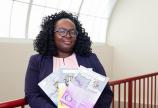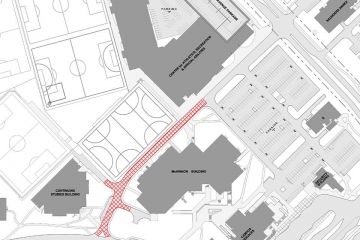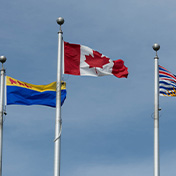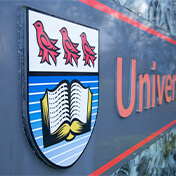Day in the Life: Annette Fraser
- Kim Dias
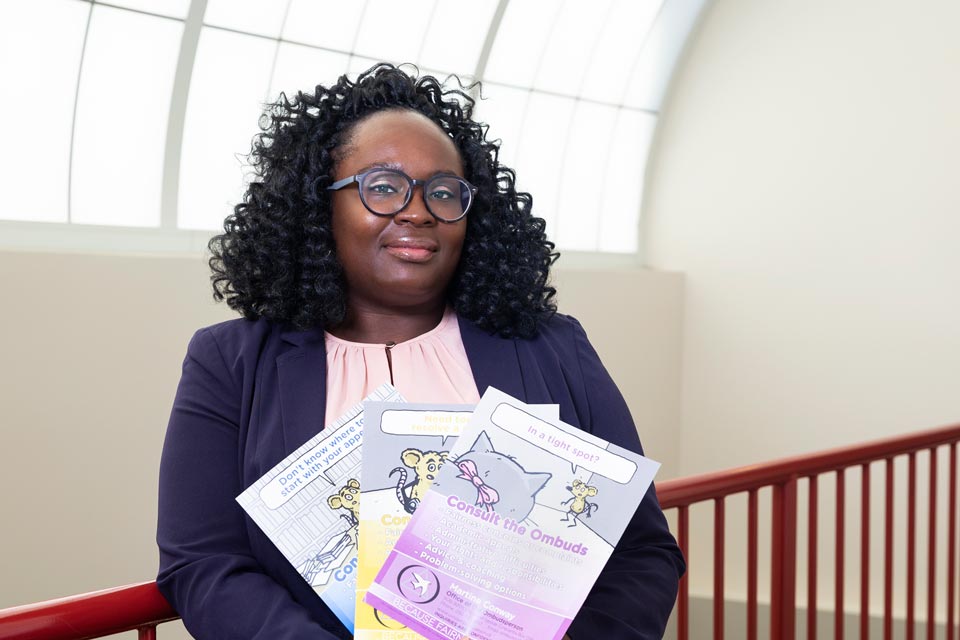
In 2008, Annette Fraser graduated from UVic with her master’s degree in dispute resolution. A decade later, in September 2018, she returned to the campus as the university’s ombudsperson.
An ombudsperson works under three guiding principles: impartiality, independence and confidentiality. Fraser is neither a UVic employee nor a student advocate. “My role is to always be looking at the issue of fairness,”she says. Acting as a neutral third party, Fraser looks into administrative fairness, which she calls “the key component in ombuds work.” She makes sure that appropriate processes are followed, that policies are applied correctly and that all parties involved in the dispute have the opportunity to be heard. Overall, Fraser describes her job as “holding the university accountable to its policies and its practices.”
But that description doesn’t accurately represent how much outreach Fraser is currently doing at UVic. One of her top priorities is making sure all UVic students know that—well, that UVic even has an ombudsperson. Right now, the majority of students she has seen have told her, “I didn’t even know you existed.” Because of that, one of Fraser’s top goals this year is to increase awareness of the ombuds office.
Fraser’s predecessor at UVic was Martine Conway, who had been the university’s ombudsperson for 18 years. Because she’s still fairly new to this position, Fraser is still exploring what unique aspects she can bring to the ombuds office. “Martine did a lot of great work,” Fraser says, “and now that I’m here, I’m also looking at what I can infuse into that work as well.” She is currently putting in a lot of time meeting with faculty and staff at UVic, researching different ways to connect with students, and trying to become as visible as possible.
One of Fraser’s favourite parts about her job is how much interaction she has with people on a daily basis. In one of her jobs for the provincial government, Fraser was working from home, which she said did not fit with her personality at all. “It wasn’t positive for my overall well-being,” she says. Now she consistently has students coming to her office. She loves that she gets daily interaction with people and still works independently. She dictates how her days go and sets aside time for appointments, research and outreach as she needs it. She calls it “the best of both worlds.”
The most common problems students come to Fraser with are requests for academic concessions (the student has extenuating circumstances that have affected their academic performance); review of assigned grades (the student does not feel the grades they received match up with the assignment description); and course delivery (the student is concerned about the way a professor is teaching a course).
A lot of what Fraser does with students is coaching. “I want to help students,” she says. “I want to empower them with the skills to feel comfortable with having that sometimes-difficult conversation with their instructor.” She generally prefers not to intervene in student matters until she has seen that students have done all they can to try resolve the matter—but she also makes sure they aren’t alone during that process.
“I try to give them the tools they need for each conversation,” she says. “I always advise them on what their rights and responsibilities are. I give suggestions on how they should outline their personal statements so that they read well to whoever who would be making the decision.”
The last thing Fraser wants is for students to be scared of speaking up for themselves. Fraser’s vision for her work is a university committed to fairness, and an important part of that is making sure that students and faculty alike are empowered to speak up against any perceived issues or unfairness. “The university wants students to succeed,” she says. “But if students don’t raise their concerns about things that aren’t working, then the university will assume things are going completely to plan.” She emphasizes that students’ voices are integral to UVic’s success.
Will she be here for 18 years? Fraser isn’t sure. But right now, she is throwing herself into her work at UVic, making sure students know she exists and that they aren’t alone in difficult administrative situations. Even when she can’t help a student herself, Fraser always makes sure they leave her office knowing how to contact the person who can help them. “I operate under the concept of an open-door policy,” she says. “I will never turn a student away.”
Fraser can be contacted either by phone at 250-721-8357 or by email at ombuddy@uvic.ca. Her office is in the Student Union Building, Room B205, and she can be seen by appointment or during her walk-in hours.
Photos
In this story
Keywords: staff, Day in the Life, student life, administrative
People: Annette Fraser
Publication: The Ring

